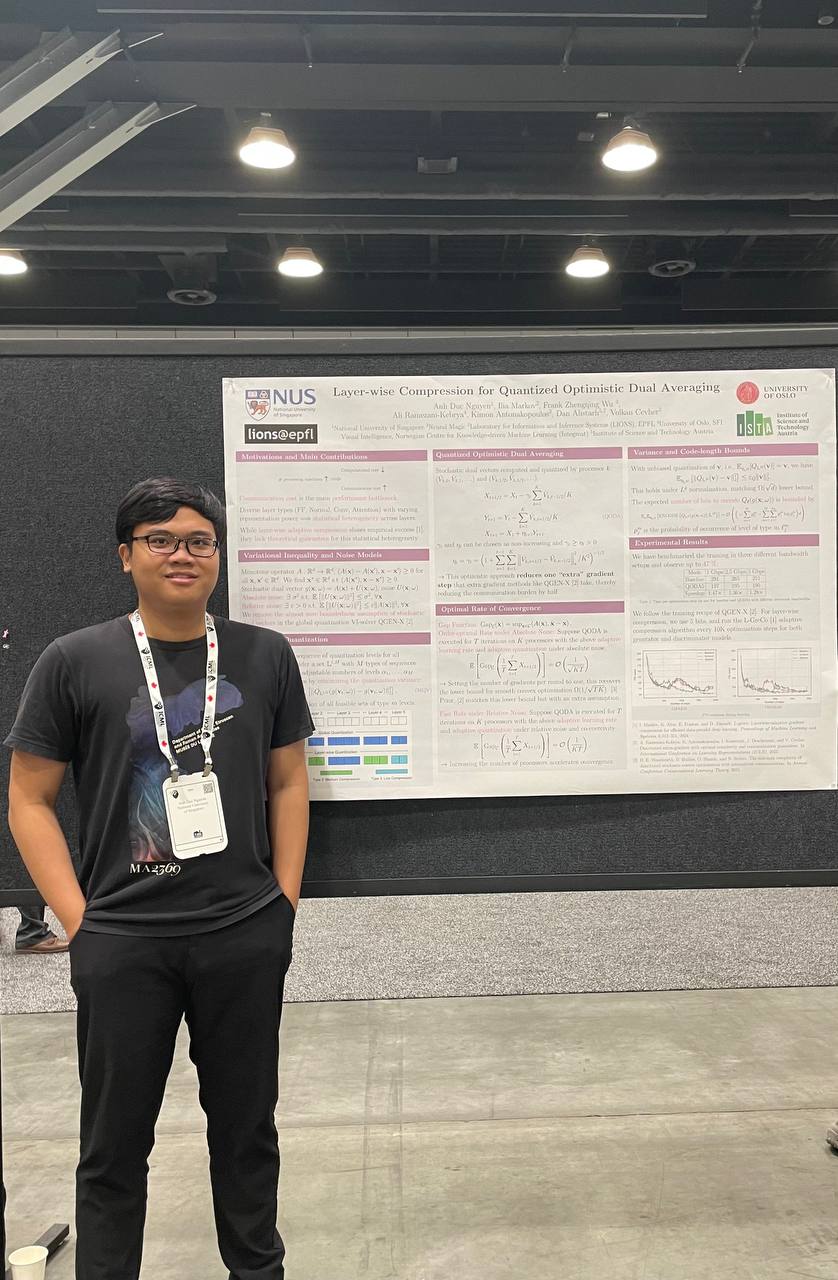
Right after high school, I wanted more than routine calculations—I wanted a deep understanding of how and why mathematical ideas fit together. The rigorous, proof‑based curriculum in NUS Mathematics has the potential to help me to develop a strong conceptual foundation. NUS Mathematics is renowned for its high academic standards and challenging coursework, qualities that matched my aspirations for a demanding programme. The department also offers exciting opportunities such as the Special Programme in Mathematics, which allows undergraduates to engage in focused, in‑depth study within small classes. Finally, recommendations from several seniors and alumni—who praised the department’s supportive culture—reinforced my decision to join NUS Mathematics.
I pursued a second major in Data Analytics to complement my theoretical training with practical skills in statistical modeling, data processing, and computational techniques. This programme required me to work with real‑world datasets, apply mathematical algorithms to complex problems, and become proficient in software tools widely used in industry—an experience that broadened my understanding of how mathematical ideas translate into tangible insights.
I was also a member of the Special Programme in Mathematics (SPM), which granted me access to advanced modules beyond the standard curriculum. In SPM, I connected with highly motivated peers and engaged in wide‑ranging discussions—both on mathematical theory and other academic interests. Thanks to the programme’s flexibility, I was allowed to enrol in graduate‑level courses without the usual prerequisites, enabling me to engage with complex material much earlier in my undergraduate career. These opportunities were complemented by regular interactions with faculty mentors, who provided guidance on academic research and helped me develop independent learning skills.
Participating in the Undergraduate Research Opportunities Programme (UROP) allowed me to experience the full research cycle in a supportive environment. Regular one‑on‑one meetings with mentors sharpened my ability to tackle open‑ended problems and fostered an appreciation for the creativity behind mathematical research. I am extremely grateful for the mentorship of Prof Toh and Prof Sim whose guidance has inspired me to become a more rigorous and independent researcher.
The NUS Mathematics Department also generously funded my trip to the INFORMS Annual Meeting 2024. Attending this conference enabled me to present my work, engage directly with leading researchers and practitioners in operations research. These conversations broadened my perspective on how mathematical methods drive real‑world decision‑making and reinforced my ambition to pursue graduate study and a career that bridges theoretical research and practical application.
To prospective students considering Mathematics at NUS, make sure to calculate how to S/U certain courses that you do not find interests in or cannot do well. Attend talks in physics, biology, or engineering to see real‑world applications of mathematical ideas as you may uncover potential interdisciplinary research directions or simply gain inspiration for your own projects.
